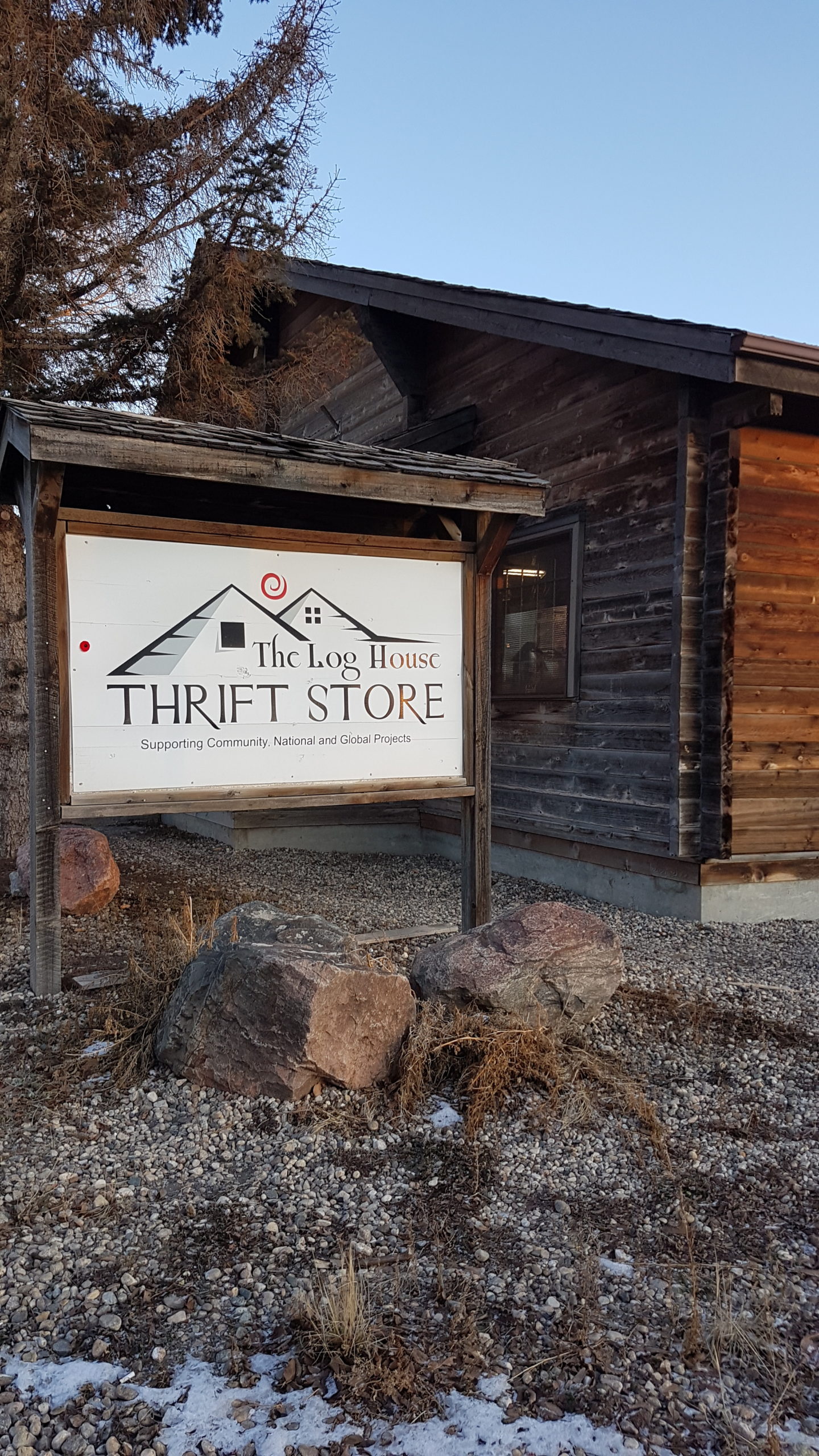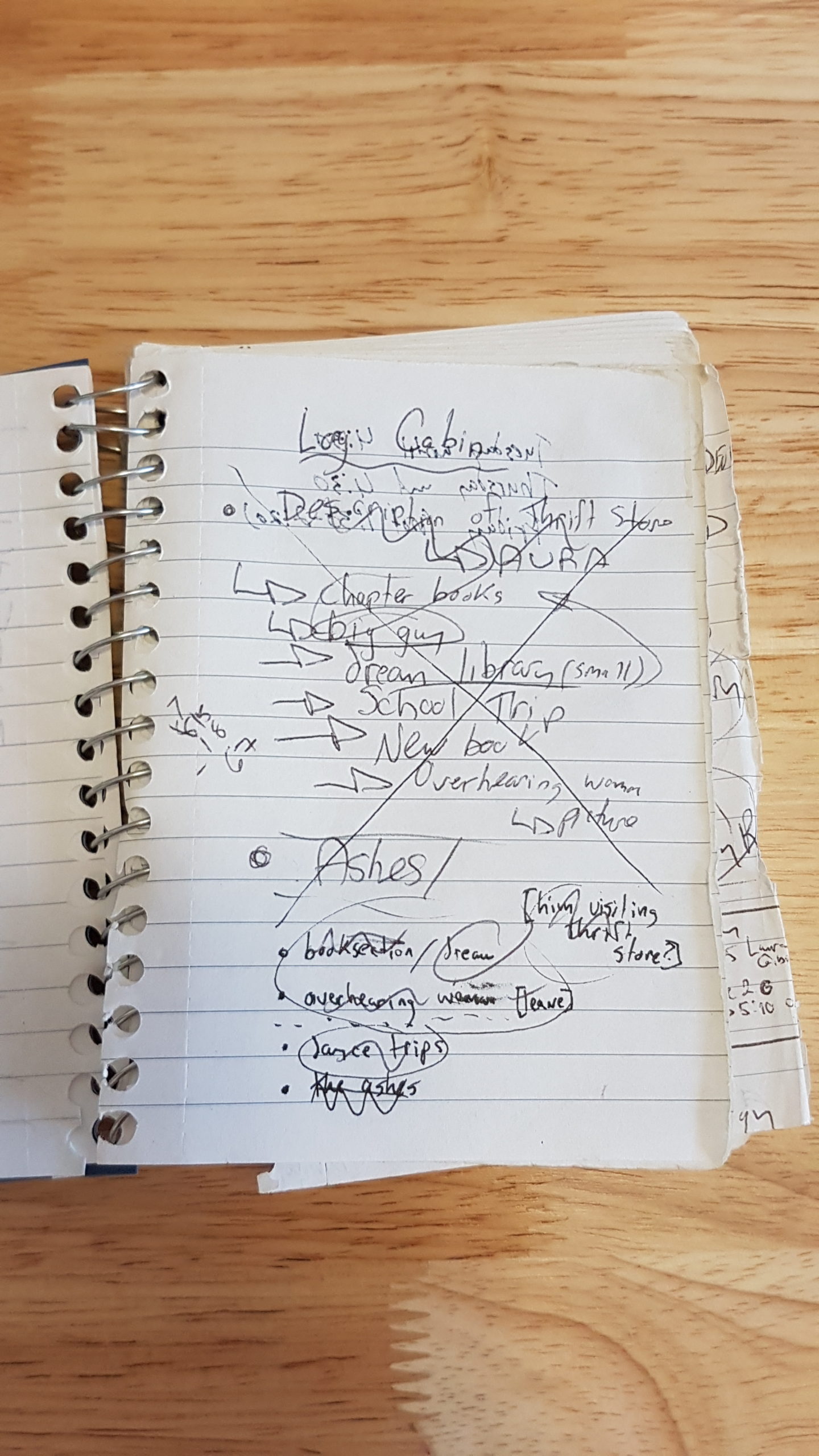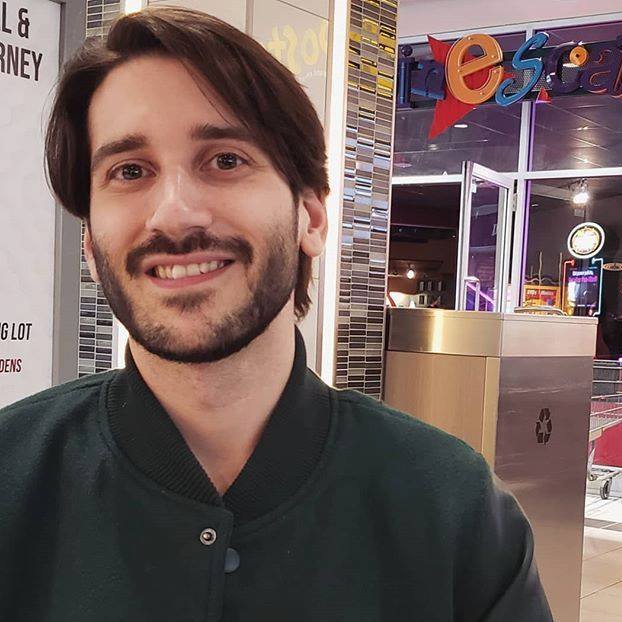Finding the Form with Credence McFadzean
By Credence McFadzean
The real-life “Log Cabin” thrift store is not located in Banff, AB, or some plains, but firmly in the heart of Regina’s North Central neighbourhood. It’s a few blocks east of where painter and diner-owner Roger Ing coined his Rogerism movement—the eminent New Utopia Café, a locale for Regina artists or those seeking orange gravy on their fries in the 80s and 90s. One block from there is the redbrick house my mother grew up in; the house I knew as my grandmother’s in younger years and my brother’s place in now-years, the versions of its spaces occasionally fighting for precedence in my mind when I go over there.

Most of my stories begin life as igniting moments I stumble into which soon prove to be hard to un-stumble out of. I would risk calling these moments “seeds” if their development was a smooth time-lapse into beautiful, fully formed story-plants. Instead, I’m going to gesture vaguely to the process by which a shelled mollusk forms a pearl. Keep in mind, I don’t think pearls are very great at all, so this is definitely NOT a humblebrag about “the timeless glimmer” of my work, or whatever phrases readers are using!
The igniting moment for one of my stories can be a strange observance in day-to-day life, a bit of stray dialogue zapped into my mind, or a surprising emotion I discover within myself that lingers. If this is like the microscopic irritant trapped inside the mollusk’s shell, then the time I spend thinking about it in the shower or while driving or on a walk—my first early attempts at imagining a narrative apparatus suitable for it—is the calcium carbonate secreted around this idea to contain it.

The Log House Thrift Store became the igniting moment for “Excavate” one afternoon while I was rifling through the bookshelves in a cramped corner and could hear my mother, fellow thrift-seeker, speaking to one of the employees on the other side of the bookcase. I thought for a second, “Wouldn’t it be funny if I didn’t recognize my own mother, even though she’s just on the other side, there?” This opened up that whole existential landscape of “Wow, people’s parents are actually just people who lived whole lives before having their people, and then suddenly they turn into ‘parents’—but wait, what if they’re still just people even after that??” Then I thought persuasively about this character who, for one mysterious second, didn’t recognize the voice on the other side of that shelf.
Through serious shower-thinking, note-jotting, and tinkering of drafts, I came up with a kind of calcium carbonate that could explore how this character’s voice communicates with the mother’s. Most of my work ends up featuring parents in some salient role, and I sometimes wonder if this is entwined with the act of storytelling. Navigating life after childhood, there is a fundamental authorship that everyone has to contend with. We are out there, a published text. We don’t belong to our authors, but to an avid and sometimes skeptical world.

Credence McFadzean is a Saskatchewan-based writer whose stories have appeared in Bad Nudes, untethered, and others. He has also been longlisted for the 2017 PULP Literature Hummingbird Prize. He teaches English at the University of Regina.
Photo by Hannes Netzell on Unsplash.

